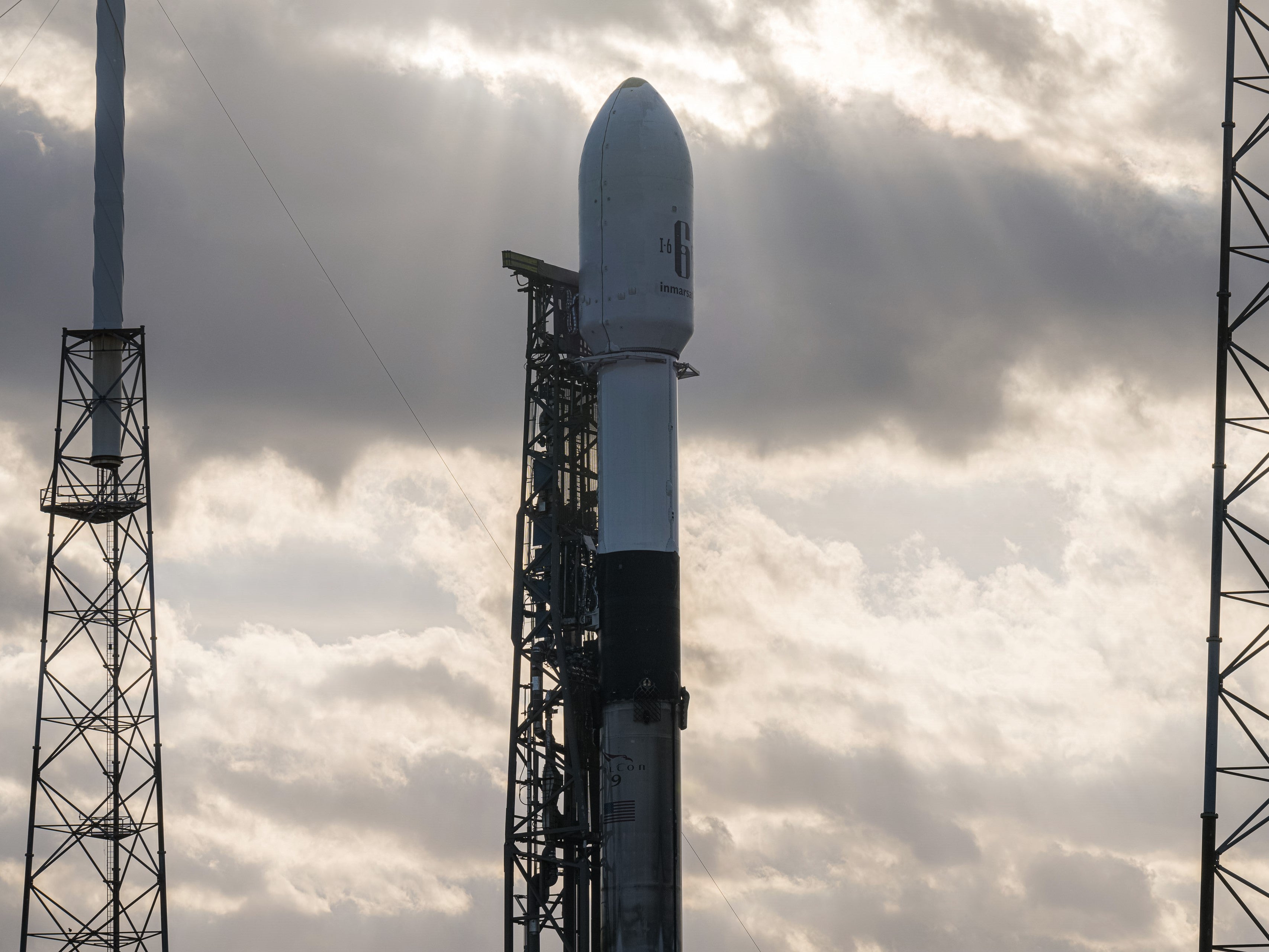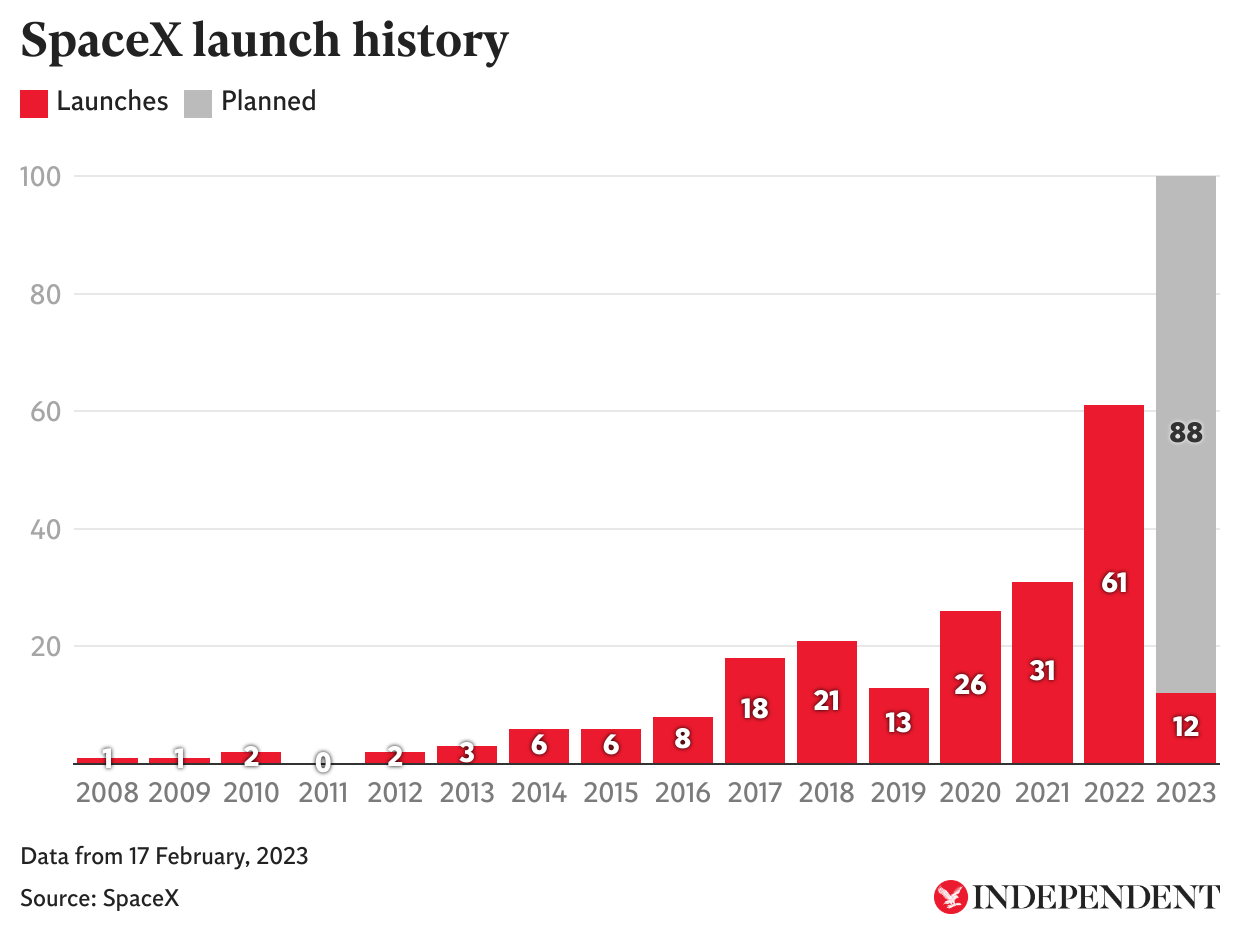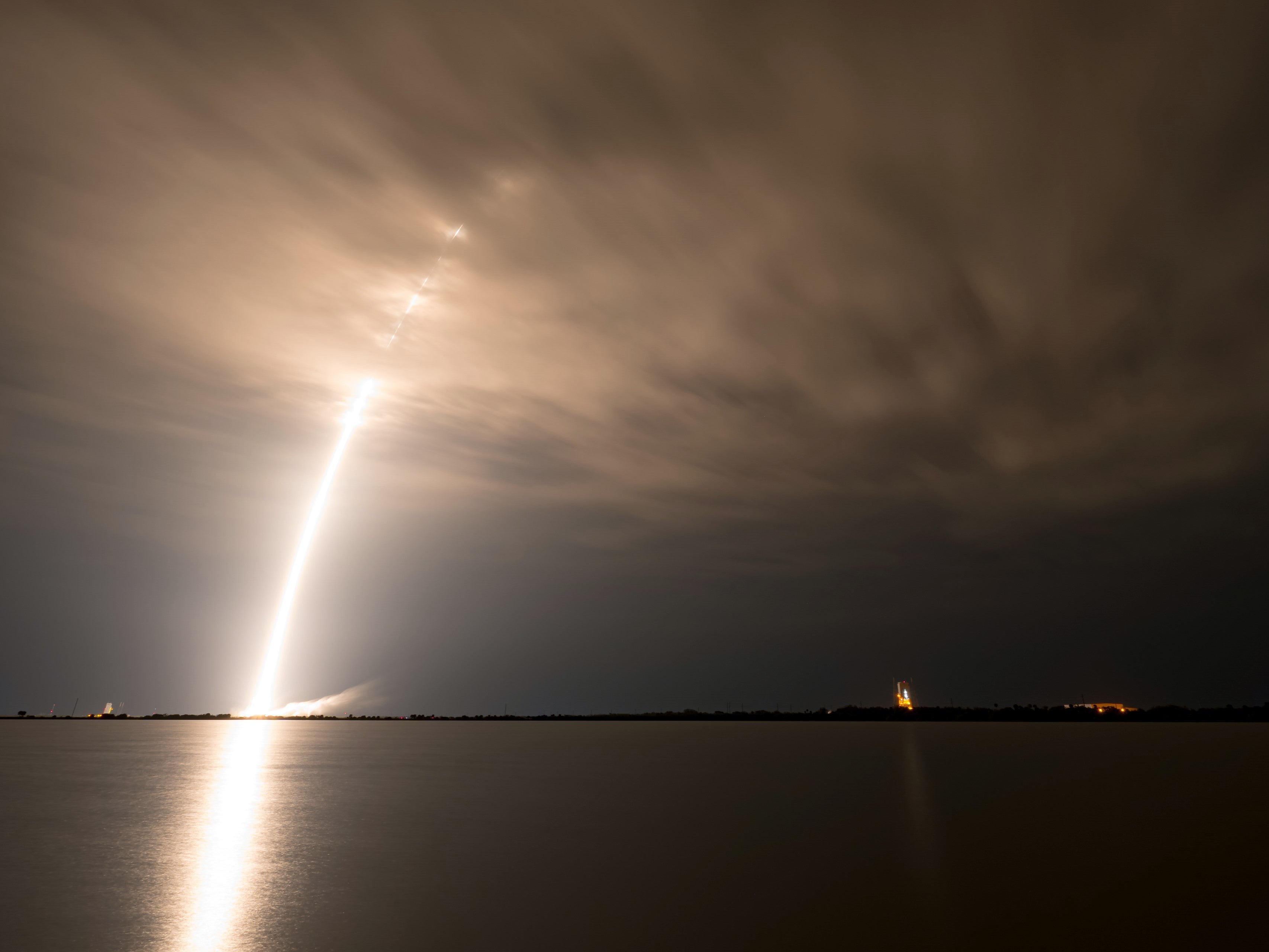World’s first ‘carbon neutral rocket launch’ achieved by UK firm
SpaceX launched Inmarsat satellite into orbit in event certified as carbon neutral by The CarbonNeutral Protocol

Your support helps us to tell the story
From reproductive rights to climate change to Big Tech, The Independent is on the ground when the story is developing. Whether it's investigating the financials of Elon Musk's pro-Trump PAC or producing our latest documentary, 'The A Word', which shines a light on the American women fighting for reproductive rights, we know how important it is to parse out the facts from the messaging.
At such a critical moment in US history, we need reporters on the ground. Your donation allows us to keep sending journalists to speak to both sides of the story.
The Independent is trusted by Americans across the entire political spectrum. And unlike many other quality news outlets, we choose not to lock Americans out of our reporting and analysis with paywalls. We believe quality journalism should be available to everyone, paid for by those who can afford it.
Your support makes all the difference.A UK satellite company has achieved the first ever carbon neutral rocket launch, according to the company’s chief executive.
London-based Inmarsat sent its I-6 F2 satellite into space aboard a SpaceX Falcon 9 on Friday, lifting off from Cape Canaveral, Florida.
Rajeev Suri, who heads the firm, said the rocket and spacecraft build emissions had been offset through carbon offsetting projects, including a biodiversity reserve in Indonesia, a gigawatt grid solar farm in Rwanda and community reforestation in Ghana.
“We’re offsetting roughly 5,000 metric tons of carbon dioxide emissions associated with the launch,” Mr Suri told The Independent following the launch.
“We’re also funding several sustainable projects across the world, through renewables, reforestation and afforestation."
The launch was certified as a carbon neutral event by The CarbonNeutral Protocol, the leading global framework for carbon neutrality.
The impacts of rocket emissions on the climate are still relatively unknown due to the infrequency of launches.
It is estimated that the space industry burns less than 1 per cent of the fossil fuels burned by the aviation industry, however the cadence of launches has begun to rapidly increase in recent years.

Unlike the aviation industry, however, rockets release pollutants all the way up to the mesosphere and stratosphere in the upper atmosphere, meaning it is difficult to make comparisons between the two.
Carbon offsets have been criticised by some environmentalists for not addressing the core issue of reducing CO2 emissions at the source, however there are currently no emissionless technologies that are powerful enough to deliver a satellite to orbit.
Some startups are working on catapult-based launch systems, though these are still years away from being commercially viable. Until then, carbon offsetting could offer a way to counter the pollution created when launching critical space infrastructure.
Climate and energy analyst Ketan Joshi, who works with the European Climate Foundation, told The Independent that carbon offset projects “should only be reserved for the most necessary and hardest to abate sectors”.
He added: “The necessity of rocket launches is a question society has to address.”
A 2022 report from Inmarsat made the case for satellite technologies being integral in not only meeting current climate targets, but actually pushing them forward.
The report estimated that satellites could help save up to 5.5 billion tonnes of CO2 a year. This amounts to roughly one-sixth of emissions cuts needed to reach net zero by 2050.
The emissions they could target range from agriculture and forestry industries, to transport and logistics, such as the optimisation of flight and shipping routes to be more fuel efficient.
It is estimated that between 5 and 10 per cent of CO2 emitted by flights is avoidable through unnecessarily long trajectories or congestion in the air that causes planes to fly in circles while waiting to land.

Playing a part in this, Mr Suri claims, will be the satellite that Inmarsat launched on Friday. The bus-sized satellite is currently making its way to geostationary orbit 36,000km (22,000 miles) above the Earth, where it will serve the aviation and maritime industries.
Together with its “twin” – the I-6 F1 – Inmarsat claims it is the most sophisticated commercial communications satellite ever built.
One of the technologies onboard will allow aircraft to be pinpointed in four dimensions – latitude, longitude, altitude and time – to help pilots and air traffic controllers to better calculate the shortest available routes and cruise at optimum altitudes.

Join our commenting forum
Join thought-provoking conversations, follow other Independent readers and see their replies
Comments